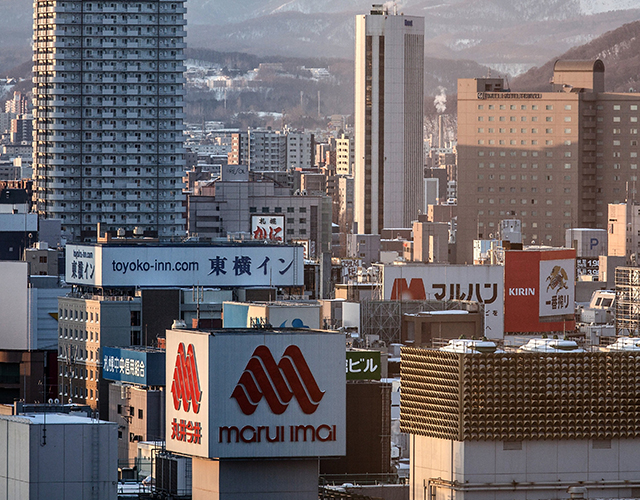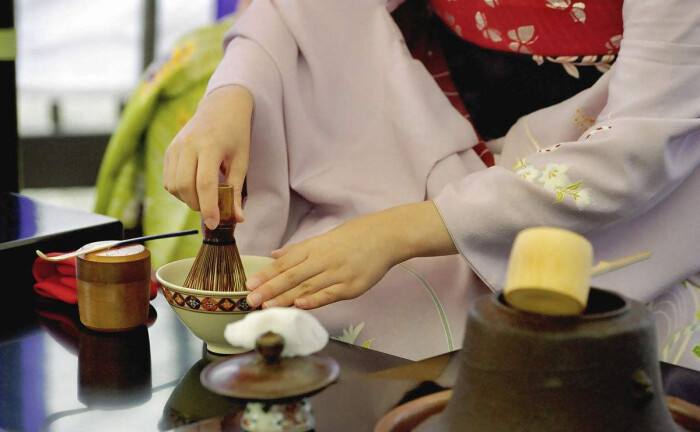
Analysis of Japanese Tea Ceremony Culture
- Japanese culture and literacy
- Time of issue:2020-07-16 10:13
- Views:0
(Summary description)
Analysis of Japanese Tea Ceremony Culture
(Summary description)
- Categories:Japanese culture and literacy
- Author:
- Origin:
- Time of issue:2020-07-16 10:13
- Views:0
Many people who go to Japan to study or work have a special liking for the Japanese tea ceremony, so how is the Japanese tea ceremony?
Although Japan and China both belong to Asian countries, their lifestyles and customs are very different from China, and they form a unique Japanese culture. The Japanese tea ceremony is one of the representatives of Japanese culture. In Japan, the tea ceremony is not only a living art, but also a valuable spirit. As Mr. Sang Tianzhong said, "The tea ceremony has changed from simple fun and entertainment to the norms and ideals that express the daily life culture of the Japanese." At the end of the sixteenth century, Qian Lixiu inherited and absorbed the spirit of the tea ceremony of the past to create the authentic Japanese tea ceremony. The tea ceremony is a life art that contains many skills and complex procedures. From the seemingly simple but elegant tea set washing, the preparation of tea, to tea, tea appreciation, smelling tea, drinking tea, every step of the Both are a kind of exquisite and beautiful.
1. The influence of tea ceremony
Japanese tea ceremony originated from Chinese tea culture. After the introduction of Chinese tea culture to Japan, after several generations of Japanese tea people's devoted research and reform and innovation, a tea ceremony system with religion, ethics, and aesthetics as a whole with Japanese national characteristics was gradually formed. As a representative of Japanese national culture, the tea ceremony not only affected the spiritual culture, architectural style, ceramic manufacturing and food culture of Japanese citizens, but also had a profound impact on its living habits, clothing, painting, flower arrangement and even literature. It can be said that there is no There is no history of Japanese culture in the tea ceremony. Studying tea ceremony plays an important role in understanding Japanese culture and Japanese society.
II. Viewpoints of tea ceremony: peace, respect, purity, silence
"Harmony, Respect, Clearness, and Silence" are the four principles of the Japanese tea ceremony, the four rules to follow, and the four rules to stick to. These four words are a high-level summary of all the spiritual connotations of the Japanese tea ceremony. As far as the tea ceremony is concerned, the situational meaning that people associate from their hearts is actually the abstract idea of these four words.
In Japan, the main ideological purpose of the tea ceremony is: the subject's "yuan" is the subject's absolute negation. The theme of this tea ceremony is invisible. The tangible ideas that emerge as the incarnation of "nothing" are peace, respect, purity, and silence. They are the four phenomena in which "Wu" was born. With the development of time, various excellent skills of the Japanese tea ceremony have been derived from the contents mentioned above.
peace represents peace, that is, peace between people. When we enter the tea room to taste a bowl of tea, whether it is the guest, "please first", "please use it slowly" and all kinds of words, all represent the meaning of "harmony" contained in the tea ceremony.
When it comes to respect, it is respect for the elders, and it also represents respect for friends and Tongji. To pay tribute to harmony, since then began the true follower of the tea ceremony.
Clean means pure and clean, and it is also the etiquette of the tea ceremony.
Quietness is the highest concept of beauty in the tea ceremony. While seeking "quietness", you can observe your contented heart and let your heart settle down in deep thinking. It is the thought born in Zen and the best for life. answer.
3. Tea-drinking procedures
Japanese tea ceremony must follow the rules and procedures for tea drinking activities. The spirit of the tea ceremony is contained in these seemingly tedious tea drinking procedures.
Tea tasting is very special place, usually in the tea room. When receiving guests, wait until the guests are seated. The tea master who presided over the ceremony lit charcoal fire, boiled water, made tea or matcha according to the prescribed actions, and then dedicated to the guests in turn.
According to regulations, guests must accept tea with both hands respectfully, thank you first, then turn the tea bowl three times, light, slow drink, and return. Ordering tea, making tea, making tea, and offering tea are the main parts of the tea ceremony. Special skills and training are required. After drinking tea, according to the habit, guests should appreciate and praise all kinds of tea sets. Finally, the guests bowed and said goodbye to the host, and the host gave each other warmly.
IV. Tea ceremony spirit
The term "one session, one session" comes from the tea theory "Tea Soup Collection" written by Iibi, the largest tea man in the late Edo period. Jing Yi said: Chasing its origin, the tea event is a one-time meeting. Even if the same host and guest can hold the tea event many times, the event at this moment cannot be reproduced. Every tea event is really a meeting of my life. Therefore, the owner must do everything possible to show his sincerity, not to be negligent. Guests must also come to the meeting with the feeling that they can no longer meet in this life, and enthusiastically receive every small ingenuity of the master and sincerely meet each other.
It can be seen that the tea ceremony is a meditation and soul-relieving Buddha. The Tea Man deserves to be a monk at home. The tea room can be compared to the buddhist temple. Therefore, the Japanese tea ceremony idea is the integration of tea and Zen. There is Zen in tea, and Zen is deeply experienced in tea tasting.
Scan the QR code to read on your phone
Mobile site

The Official Account

Add::4F, Terminal Building, 5188 Silicon Valley Street, High-tech Industrial Zone, Changchun
Tel:(86)431-8052 0551 Fax:(86)431-8052 0559





 中(zhōng)文
中(zhōng)文 English
English

